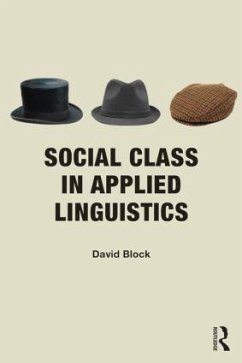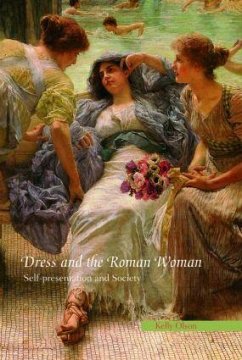
Classics and Prison Education in the US
Versandkostenfrei!
Versandfertig in 6-10 Tagen
22,99 €
inkl. MwSt.
Weitere Ausgaben:

PAYBACK Punkte
11 °P sammeln!
This volume focuses on teaching Classics in carceral contexts in the US and offers an overview of the range of incarcerated adults, their circumstances, and the ways in which they are approaching and reinterpreting Greek and Roman texts.Classics and Prison Education in the US examines how different incarcerated adults - male, female, or gender non-conforming; young or old; serving long sentences or about to be released - are reading and discussing Classical texts, and what this may entail. Moreover, it provides a sophisticated examination of the best pedagogical practices for teaching in a pri...
This volume focuses on teaching Classics in carceral contexts in the US and offers an overview of the range of incarcerated adults, their circumstances, and the ways in which they are approaching and reinterpreting Greek and Roman texts.
Classics and Prison Education in the US examines how different incarcerated adults - male, female, or gender non-conforming; young or old; serving long sentences or about to be released - are reading and discussing Classical texts, and what this may entail. Moreover, it provides a sophisticated examination of the best pedagogical practices for teaching in a prison setting and for preparing returning citizens, as well as a considered discussion of the possible dangers of engaging in such teaching - whether because of the potential complicity with the carceral state, or because of the historical position of Classics in elitist education.
This edited volume will be a resource for those interested in Classics pedagogy, as well as the role that Classics can play in different areas of society and education, and the impact it can have.
Classics and Prison Education in the US examines how different incarcerated adults - male, female, or gender non-conforming; young or old; serving long sentences or about to be released - are reading and discussing Classical texts, and what this may entail. Moreover, it provides a sophisticated examination of the best pedagogical practices for teaching in a prison setting and for preparing returning citizens, as well as a considered discussion of the possible dangers of engaging in such teaching - whether because of the potential complicity with the carceral state, or because of the historical position of Classics in elitist education.
This edited volume will be a resource for those interested in Classics pedagogy, as well as the role that Classics can play in different areas of society and education, and the impact it can have.














